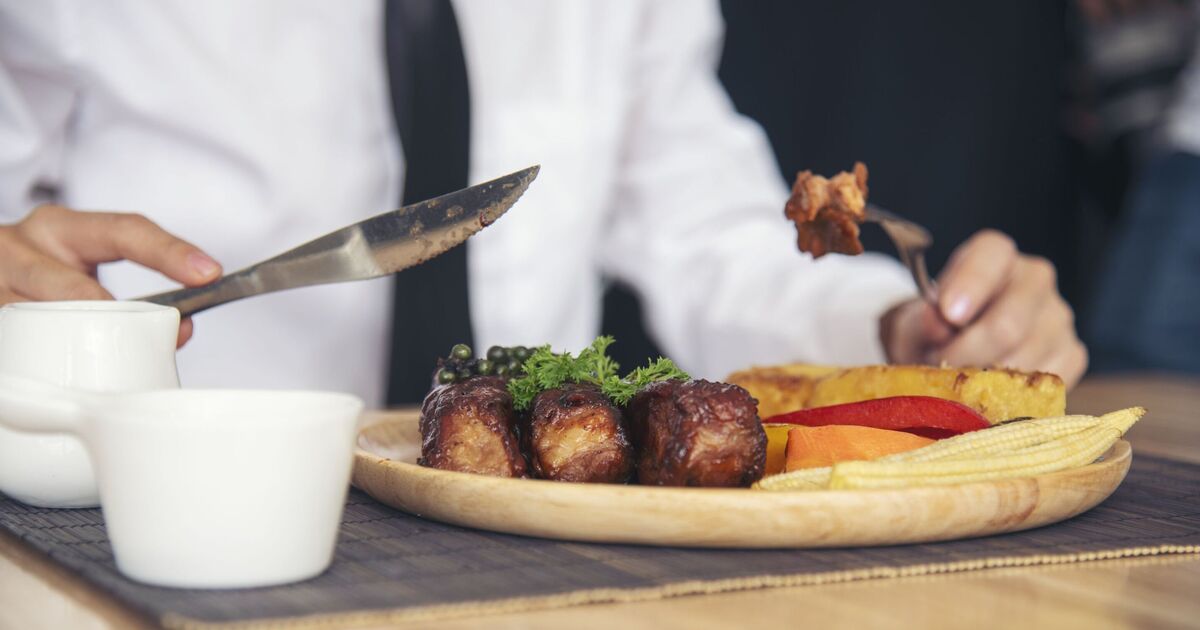A cancer dietitian has said that she wants to put an end to myths that we have to avoid certain food and drinks and instead, we should simply enjoy what we want to consume. And by doing so, she has revealed a surprising list of foods and drinks she claims can be consumed without risk.
Items we’re often told to avoid include red meat, artificial sweeteners, and fizzy drinks – yet these are on her list of safe things to have in our diets. With over 15 years of experience in oncology nutrition, Nichole Andrews regularly shares advice with her 200,000 TikTok followers. In her latest post, she shared a list of ‘safe’ items and it’s good news.
The 38-year-old said: “I know how amazing and powerful nutrition can be to help survivors have better treatment outcomes and reduce risk of recurrence. Based in Tri-Cities, Washington, US, she expressed her frustration at the misinformation out there, which prevents people from eating well, and her joy at being able to clear up confusion and help people eat confidently.
Previously, Nichole had shared foods she avoids due to her “cancer prevention lifestyle”, including alcohol, pepperoni, and sugary drinks. However, she has now revealed some unexpected safer options.
In good news for movie lovers, microwave popcorn is on the list. There is also a mention of artificial sweeteners, coffee, peanut butter, rotisserie chicken and soy products. Contrary to popular belief, Nichole says it’s safe to consume red meat, but advises not exceeding 18oz per week.
She clarified: “Red meat is not going to increase the risk of cancer at consumption, like alcohol and processed meats do, however they will increase risks of colorectal cancer after 18 ounces a week. I usually keep to one serving of red meat a week, or I just don’t have any at all.”
Although we are often told to avoid fizzy drinks, Nichole says that diet drinks are acceptable, as it’s the sugar content that can heighten cancer risks. She also noted excess body fat tissue can escalate the risk of 13 different types of cancer.
Nichole further advised: “Maintaining a healthy level of calories is key to keeping your body fat tissue down. I prefer not to get my calories from sodas.
“If you opt for a large soda during a meal out, you’re likely to consume a lot of extra calories. When I dine out, I usually choose water or unsweetened ice tea, or you could go for a diet soda.”
As for foods that can potentially reduce your risk of developing cancer? Nichole recommends cruciferous vegetables, berries, garlic, tomatoes, green tea, turmeric, leafy greens, nuts, carrots and legumes.
NHS cancer warning
There are a number of warning signs you need to look out for with the NHS listing signs and symptoms of a variety of cancers. This means you need to keep an eye out on any of the following, but note these symptoms does not mean cancer, but if they are unexplained please call your GP:
- tummy discomfort
- blood in your poo
- diarrhoea or constipation for no obvious reason
- a feeling of not having fully emptied your bowels after going to the toilet
- pain in your stomach or bottom (anus)
- your poo is loose, pale or looks greasy
- bloating
- coughing
- blood in your urine
- Itchy or yellow skin
- fatigue
- Indigestion and heartburn
- Unexplained weight loss
- vaginal bleeding between periods
- vaginal bleeding a year or more after the menopause (postmenopausal bleeding)
- bleeding from your bottom
- blood when you cough
- blood in your vomit
- lumps
- chest pain
- breathlessness










